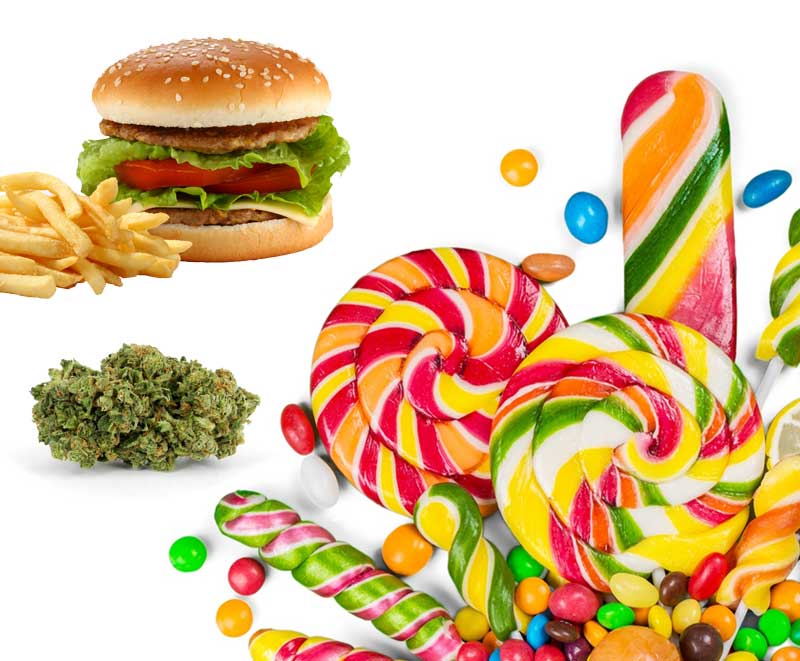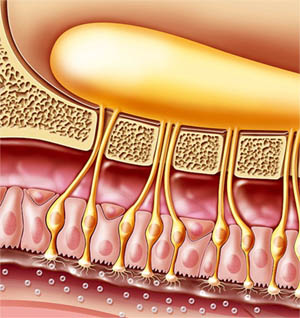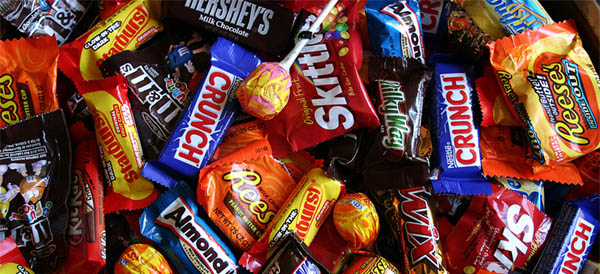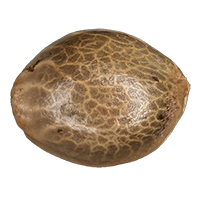Cannabis & binge eating: why cannabis makes you hungry

We have known for some time that cannabis can be used to influence the feeling of hunger. The endocannabinoid system ECS seems to play a major role in this. Thus, endocannabinoid activities in the central nervous system regulate food intake by the ECS sending signals to the hypothalamus in the brain that it is time to eat something. A study by the University of Bordeaux published in the Journal of Nature Science now shows that an increased sense of smell also plays a role.
The basis of the European study is the idea that sensory perception increases in the face of hunger, which in turn leads to increased food intake. The research team led by Giovanni Marsicano found that there is a relationship between cannabinoids and the olfactory bulb, which sends olfactory signals from the nose to the brain.
 The research team first investigated the effect of the CB1 receptor on the sense of smell. They found that mice presented with bananas and almond oil lost interest in the aroma after a short time. However, this was no longer the case when tetrahydrocannabinol (THC) was added to the equation. The mice continued to smell the oil when they were given THC. They also ate more food than without the THC administration.
The research team first investigated the effect of the CB1 receptor on the sense of smell. They found that mice presented with bananas and almond oil lost interest in the aroma after a short time. However, this was no longer the case when tetrahydrocannabinol (THC) was added to the equation. The mice continued to smell the oil when they were given THC. They also ate more food than without the THC administration.
For further investigations, the research team conducted the same study on genetically manipulated mice that did not have CB1 receptors in the olfactory bulb. The results showed that tetrahydrocannbinol (THC) had no effect on the sense of smell and appetite in these mice.
Cannabis thus seems to be able to activate a kind of "reset button" in the olfactory sensation, so that no saturation with flavours takes place, and this results in a stronger feeling of hunger.
This new finding is probably only part of the connection between hunger and THC. Previous research has found that cannabis also acts on receptors in a region of the brain called the nucleus accumbens, stimulating the release of the neurotransmitter dopamine, leading to a feeling of pleasure when eating while high. Other research has found that THC additionally interacts with the same types of receptors in the hypothalamus, leading to the release of the hormone gehrelin, which stimulates hunger.
The one aspect that links these different mechanisms is that they all involve the natural endocannabinoid system in the brain. THC, and through it marijuana, uses the same signalling pathways that the brain uses to normally regulate the senses.

The new study explains the way THC manipulates the natural system: It mimics the sensation we have when we are deprived of food. As a final test, the researchers forced some mice to fast for 24 hours. They found that these mice produced endogenous cannabinoids on their olfactory lobes. These starved mice showed greater sensitivity to odours and ate significantly more. The genetically modified mice without cannabinoid receptors in the olfactory lobes lacked this increased sensitivity to odours and also the increased appetite, even when they were starved.
This suggests that both THC and the natural cannabinoids (endocannabinoids) that lead to hunger act in the same ways. They increase sensitivity to smell and taste, which in turn leads to increased food intake. In other words, THC tricks our brain into thinking we are hungry, which then leads to the hunger attacks.
http://www.nature.com/neuro/journal/v17/n3/full/nn.3647.html
[fblike style="standard" showfaces="false" width="450″ verb="like" font="arial"] [fbshare type="button"] [google_plusone size="standard" annotation="none" language="English (UK)"]





